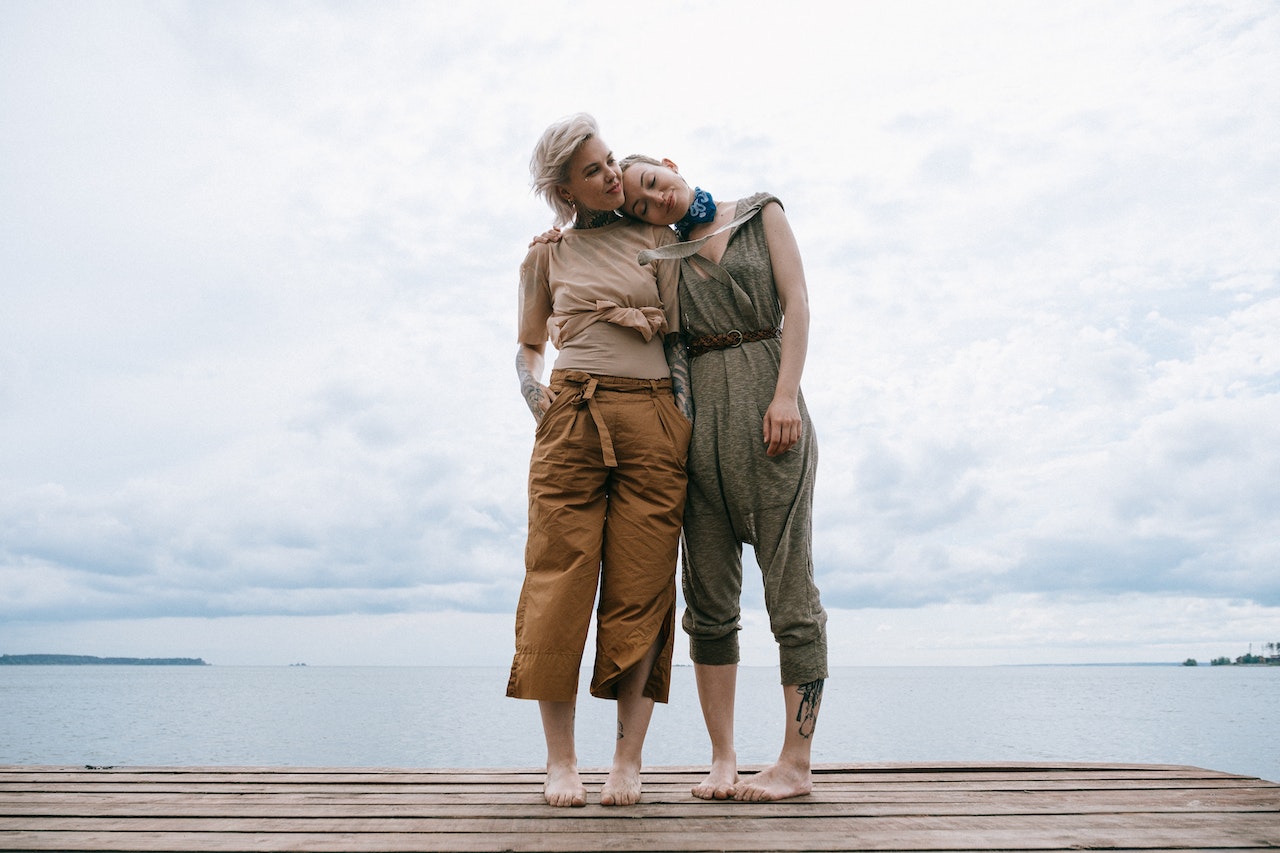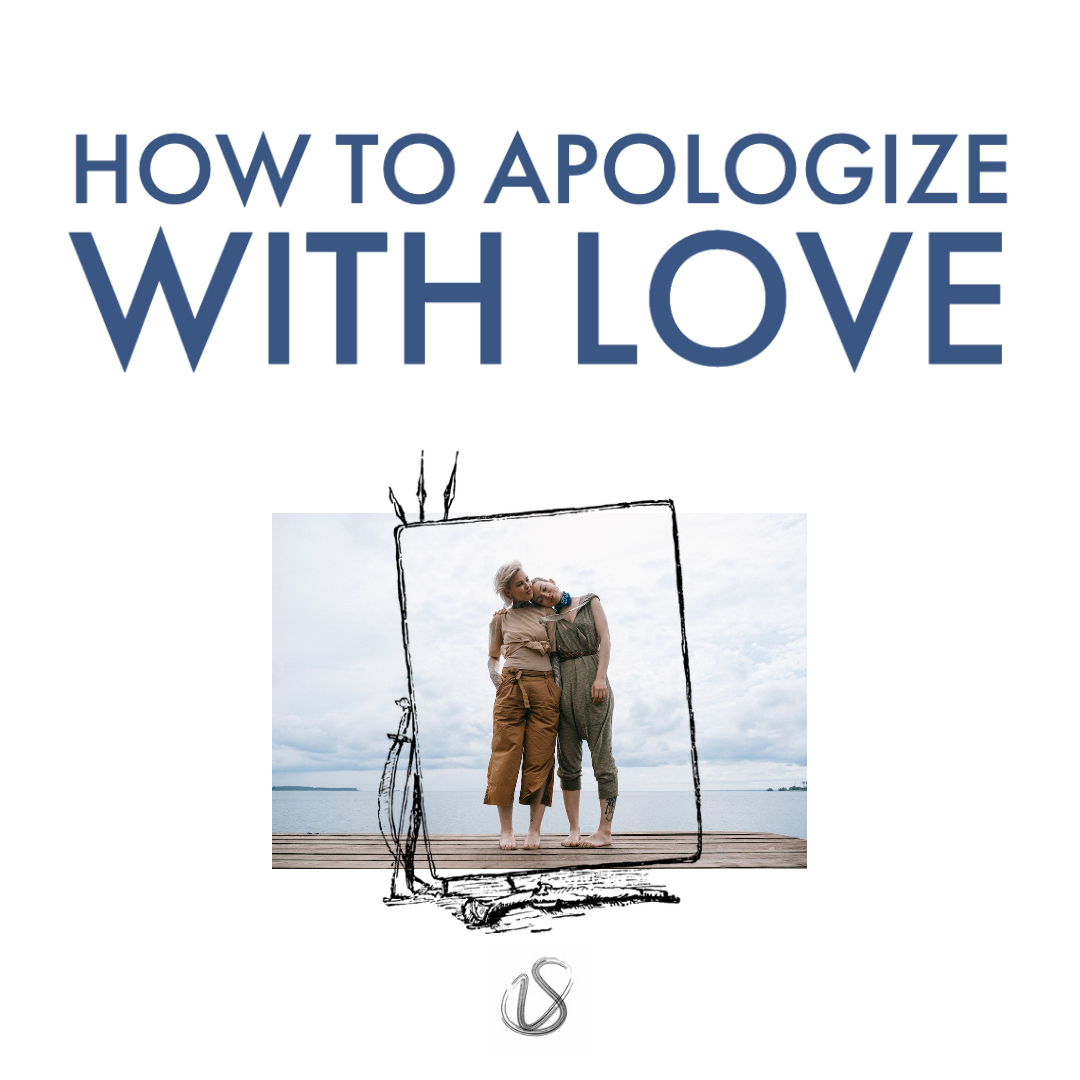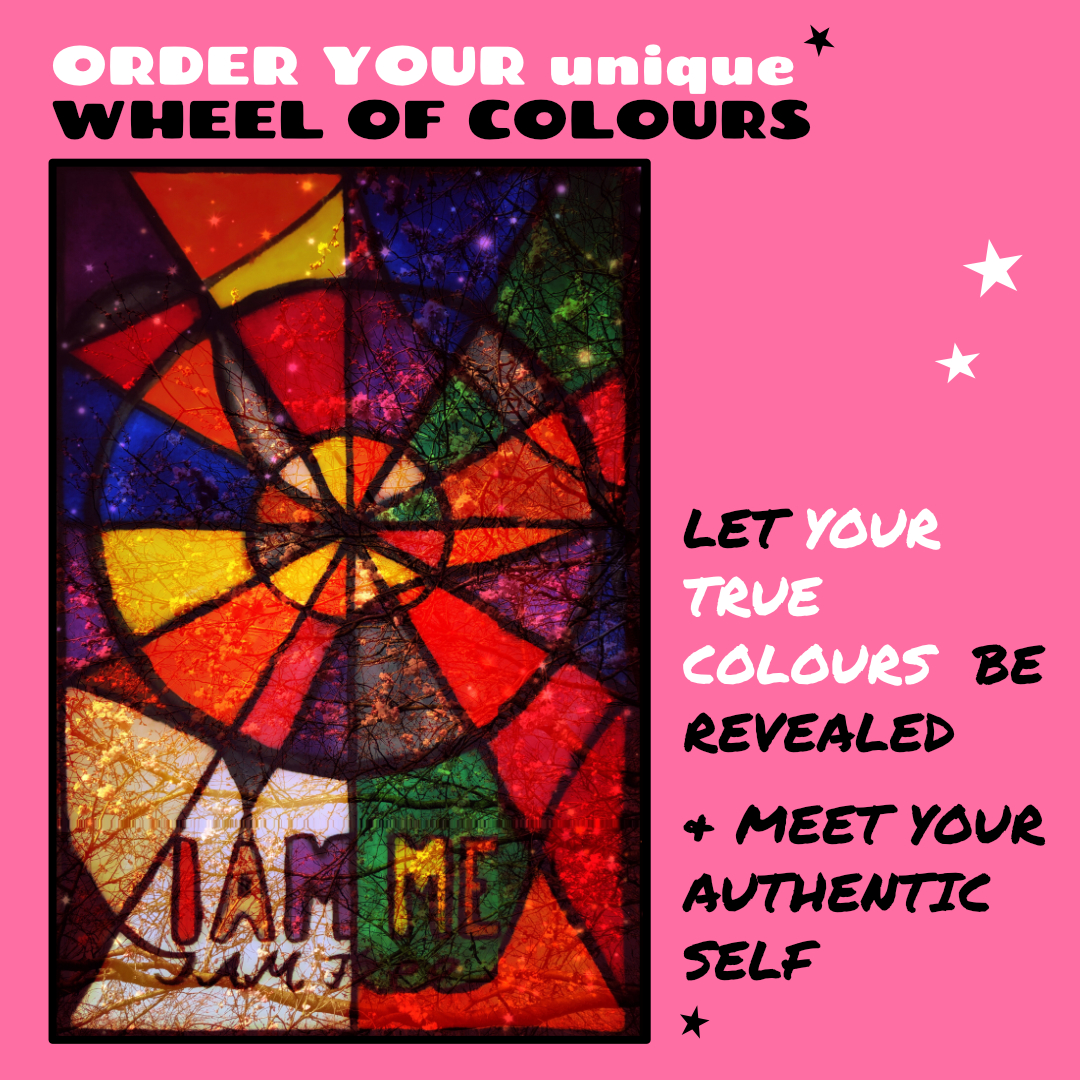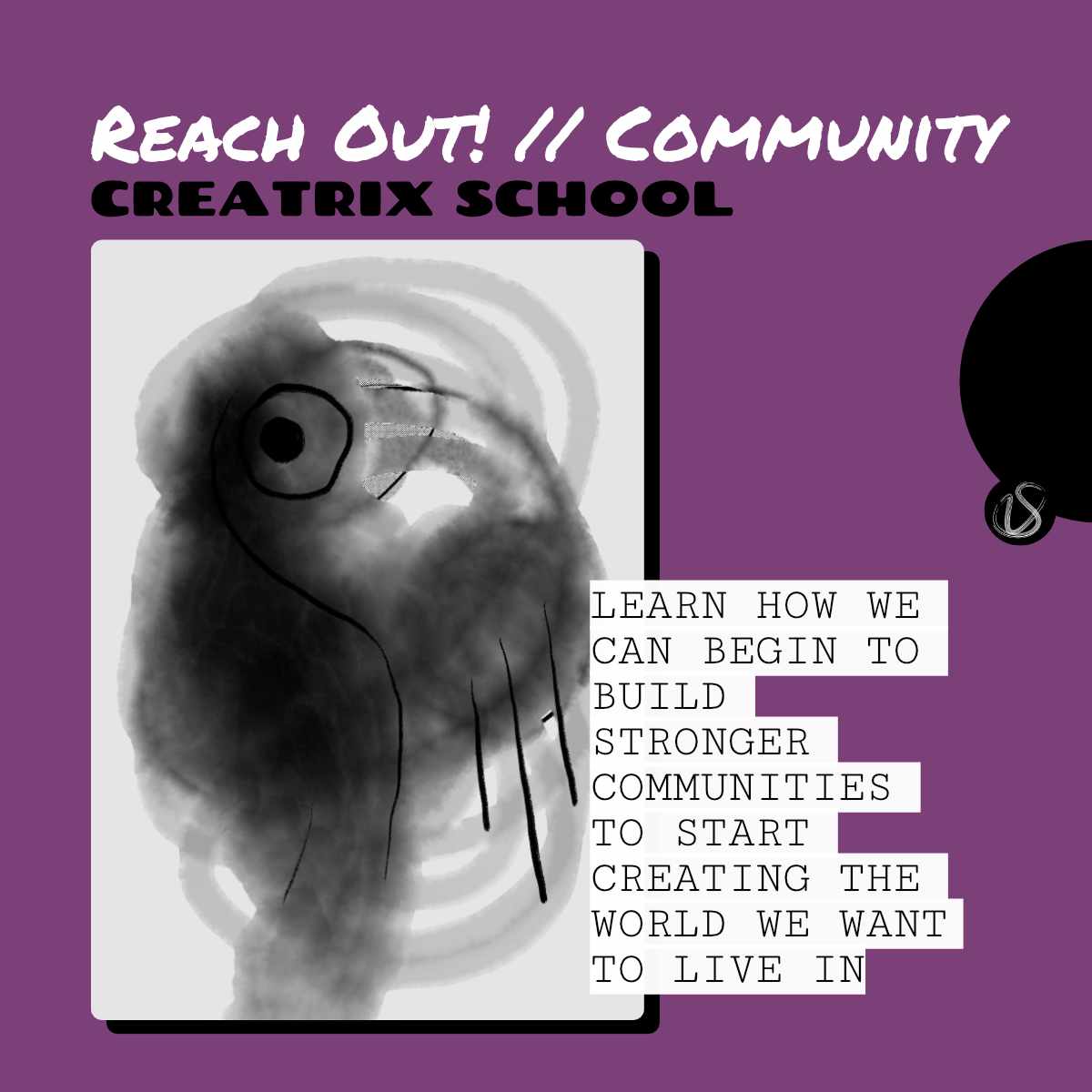Photo by Anna Shvets on Pexels.
Navigating life can be tricky.
Especially when our socialization, and with it the programs that now run on autopilot in our minds, have not yet been gently directed towards working in a way that supports our goals of feeling connected, loved and see, heard and understood.
But we can change things, and learning how to apologize well, is something that will make life easier more joyful and can help us to build the strong connections we are seeking.
Why do we need to learn to apologize?
To be human means to make mistakes.
There is not one single human being who does not make mistakes regularly.
Yet, often, when we are the ones making the mistake, we think that we are the only ones in the whole wide world to do so.
That idea, and the shame, connected to it, can lead us to deflect or shift the blame to the person we’ve hurt or to simply ignore it and to act like it didn’t happen.
This has to do with the false cultural assumption, that many of us grew up with, that admitting a mistake is a sign of weakness, when in fact admitting mistakes and honestly apologizing for them is a huge sign of strength.
Being able to hear somebody out, to acknowledge their pain and to apologize for our mistakes shows maturity, builds trust and creates strong and healthy relationships.
Again, we all make mistakes, there’s nothing wrong with that.
What’s wrong is how we have been viewing mistakes (as something to avoid) and the sad truth that many of us never really learned to apologize as a result.
But the good thing is, though this might have been a mistake we all made 😉 – we can recognize it now and learn how to do things better.
Can’t we just avoid the mistakes?
The reality is, that we need to make mistakes and that mistakes are an essential part of our learning and our growth.
If we try to avoid mistakes or failure, we avoid growing.
Imagine we knew everything there is to know, or we would be able to do and master everything without effort – what would be left to accomplish?
What would we do with our natural drive to explore, our curiosity and our will to try new things?
Mistakes are a necessary and beneficial part of our growth, and really, to avoid mistakes, we would probably have to stay stuck where we are and that in itself might be something we would later recognize to have been a mistake as well.
We really cannot avoid making mistakes.
And if we can’t avoid making mistakes, it means we also can’t avoid to occasionally hurting people’s feelings (or even to hurt them physically).
What we can avoid, though, is, to ignore the damage done and instead use it as a way to (re)build trust and to learn, and to grow.
Apologies build trust
Just a few days ago, I saw this wonderful video of a young woman sharing how her father helped her to see failure as a win.
Every week, he would ask her: “What have you failed at this week?” And she would have to think of something and, once she told him, he would reply: “Good for you!”
She recalled a day, when she came home and told her father that she tried at a rehearsal and did awful, but that she’s glad she tried anyway. He would high five her, and that was it.
As you can imagine, she appeared to be very confident and ready to take on anything.
Isn’t that something we would all like to be? If so, then we need to learn to embrace our mistakes and failures.
Because the thing is, in the end we regret the things we haven’t tried, not the ones we failed at.
So, what if we turned things around a little and our goal wouldn’t be to succeed more, but to fail more?
The more we dare to fail, the more often we will succeed.
And the bigger and greater the things will be, we will allow ourselves to try.
The goal can be to fail more so that we can get better, get to know ourselves better and experience life instead of stopping in our tracks before we’ve even tried – out of fear that we might do it wrong.
To be able to do this confidently, and mindfully, though, we also need to be able to apologize well and take responsibility for our actions and mistakes.
We cannot look away from the stress, pain or suffering we will inadvertently cause with our actions, by being brave, curious and flawed, yet whole, human beings, living and trying to navigate the flow of life.
So, let’s have a look at how to apologize, and also, how not to apologize.
How to apologize with love
While, ‘I’m sorry.’ is a good start for an apology, it is usually not enough.
Generally, an apology needs two things:
1. Recognition of the pain caused and
2. an effort to show that steps are taken to avoid the same mistake in the future.
This means that we actually have to take the time to look at what happened, see the other person who got hurt, and take the responsibility to do everything in our power not to hurt them again.
It means that we actually take the time to reflect on our actions, evaluate them, make them conscious and reflect on how we got there.
And we acknowledge the person we hurt and look at them with openness and love and act from that place too.
What is not an apology
If an apology is ever followed by a ‘but…’, it’s not a real apology, but someone making excuses ;).
“I’m sorry I stepped on your foot, but it was in the way.” – is not a good apology.
“I’m sorry I stepped on your foot, I wasn’t paying attention, I’ll be more careful now. Are you OK?” – is a good apology.
Just take a second to feel both of these situations and how often you’ve been in either.
And see how you can say the right thing, next time you step on someone’s foot, or slip up in a way that just happens.
So, in short: no buts, instead taking responsibility and meeting the other person with recognition and care.
The other thing that often happens, when people get hurt, is that the person who caused the pain adds to it by questioning the other person, asking if it was really that bad, or telling them not to be so sensitive.
Again, instead we can acknowledge the pain caused, ask what they need and make sure to sharpen your awareness to not let it happen again.
Just imagine you are kicking a ball, and it hits a person walking by in the back.
They are surprised, hurt, and might yell something at you.
What do you do?
Turn around and say/think:
“I’m sure it wasn’t that bad, that it required them to yell at me like this.”
Or do you go over and say that you’re really sorry, ask them if they are OK, or if they need anything?
Another thing that often happens, especially in relationships or with family, is that instead of owning our mistakes, we point at things that the other person does wrong as well.
These are separate things, they might all need attention, but one has nothing to do with the other.
“I’m sorry I hurt you, but (!) in other situations you hurt me too” – is just not good enough.
Speak up when you get hurt, but apologize when you do the hurting.
Another thing to be aware of is that “I’m sorry you feel that way.” is also not an apology.
It’s missing the acknowledgement and taking preventative action.
It also shows avoidance.
If you actually do not think that you’ve made a mistake and that the other person is falsely accusing you, you can still meet them with love to find a solution.
Instead of brushing it off, you could simply ask them why they feel the way they do and learn something about them.
Maybe by understanding what the situation felt like or looked like for them, you can see how your behaviour was perceived as hurtful, even if you didn’t intend for it to be so and learn and grow and share your side as well, so both parties can become more aware.
Why this is important
We’ve all been on both sides.
Depending on the severity of the pain caused, how often we see a person, or how close we are to that person, it can be easier or more difficult to move on for them without a heartfelt apology.
If we train this, an apology is much easier, quicker, more effective and generally more beneficial to all involved, than letting the hurt person work through the pain and overcome it themselves, while we cut off and silence a part of ourselves, that feels compassion or remorse.
Not knowing how to apologize well and with love can end relationships, will distance people, and breaks trust.
It is a missed chance to strengthen a relationship, by showing that we are responsible, capable and loving people.
To know how to apologize with confidence, openness and love will never weaken a relationship, but strengthen it instead.
Knowing, experiencing and practising this, knowing when and how to apologize will become much easier and will help you to enjoy and explore life a lot more freely than before.
We practice this in the relationship chapter of the CREATRIX School as well.
You are very warmly invited to join.





0 Comments
Trackbacks/Pingbacks